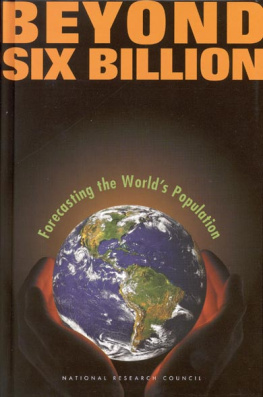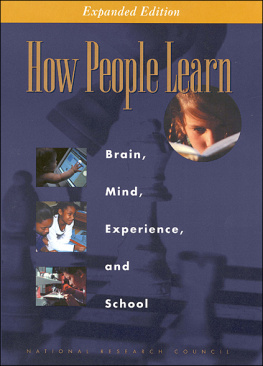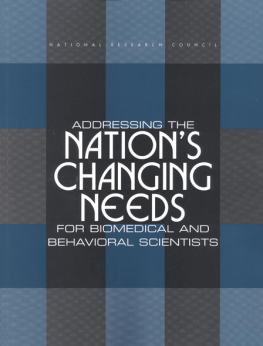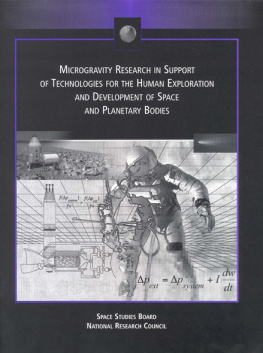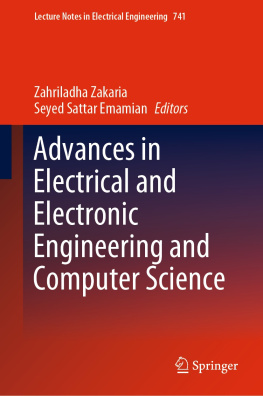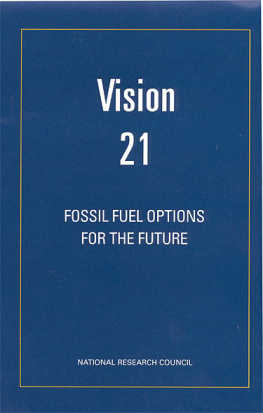National Research Council - Issues for Science and Engineering Researchers in the Digital Age
Here you can read online National Research Council - Issues for Science and Engineering Researchers in the Digital Age full text of the book (entire story) in english for free. Download pdf and epub, get meaning, cover and reviews about this ebook. year: 2001, publisher: NATIONAL ACADEMY PRESS, genre: Politics. Description of the work, (preface) as well as reviews are available. Best literature library LitArk.com created for fans of good reading and offers a wide selection of genres:
Romance novel
Science fiction
Adventure
Detective
Science
History
Home and family
Prose
Art
Politics
Computer
Non-fiction
Religion
Business
Children
Humor
Choose a favorite category and find really read worthwhile books. Enjoy immersion in the world of imagination, feel the emotions of the characters or learn something new for yourself, make an fascinating discovery.

- Book:Issues for Science and Engineering Researchers in the Digital Age
- Author:
- Publisher:NATIONAL ACADEMY PRESS
- Genre:
- Year:2001
- Rating:5 / 5
- Favourites:Add to favourites
- Your mark:
- 100
- 1
- 2
- 3
- 4
- 5
Issues for Science and Engineering Researchers in the Digital Age: summary, description and annotation
We offer to read an annotation, description, summary or preface (depends on what the author of the book "Issues for Science and Engineering Researchers in the Digital Age" wrote himself). If you haven't found the necessary information about the book — write in the comments, we will try to find it.
National Research Council: author's other books
Who wrote Issues for Science and Engineering Researchers in the Digital Age? Find out the surname, the name of the author of the book and a list of all author's works by series.
Issues for Science and Engineering Researchers in the Digital Age — read online for free the complete book (whole text) full work
Below is the text of the book, divided by pages. System saving the place of the last page read, allows you to conveniently read the book "Issues for Science and Engineering Researchers in the Digital Age" online for free, without having to search again every time where you left off. Put a bookmark, and you can go to the page where you finished reading at any time.
Font size:
Interval:
Bookmark:
Issues for Science and Engineering Researchers in the Digital Age
Office of Special Projects
Policy and Global Affairs
National Research Council
NATIONAL ACADEMY PRESS
Washington, D.C.
NATIONAL ACADEMY PRESS
2101 Constitution Avenue, N.W.
Washington, DC20418
NOTICE: The project that is the subject of this report was approved by the Governing Board of the National Research Council, whose members are drawn from the councils of the National Academy of Sciences, the National Academy of Engineering, and the Institute of Medicine. The members of the committee responsible for the report were chosen for their special competences and with regard for appropriate balance.
This study was supported by Grant No. EIA-9812623 between the National Academy of Sciences and the National Science Foundation. Any opinions, findings, conclusions, or recommendations expressed in this publication are those of the author(s) and do not necessarily reflect the views of the National Science Foundation.
ISBN 0-309-17100-8 e-pub ISBN
International Standard Book Number 0-309-07417-7
Additional copies of this report are available from National Academy Press, 2101 Constitution Avenue, N.W. , Lockbox 285 , Washington, D.C. 20055 ; (800) 624-6242 or (202) 334-3313 (in the Washington metropolitan area); Internet,
http://www.nap.edu
National Academy of Sciences
National Academy of Engineering
Institute of Medicine
National Research Council
The National Academy of Sciences is a private, nonprofit, self-perpetuating society of distinguished scholars engaged in scientific and engineering research, dedicated to the furtherance of science and technology and to their use for the general welfare. Upon the authority of the charter granted to it by the Congress in 1863, the Academy has a mandate that requires it to advise the federal government on scientific and technical matters. Dr. Bruce M. Alberts is president of the National Academy of Sciences.
The National Academy of Engineering was established in 1964, under the charter of the National Academy of Sciences, as a parallel organization of outstanding engineers. It is autonomous in its administration and in the selection of its members, sharing with the National Academy of Sciences the responsibility for advising the federal government. The National Academy of Engineering also sponsors engineering programs aimed at meeting national needs, encourages education and research, and recognizes the superior achievements of engineers. Dr. William A. Wulf is president of the National Academy of Engineering.
The Institute of Medicine was established in 1970 by the National Academy of Sciences to secure the services of eminent members of appropriate professions in the examination of policy matters pertaining to the health of the public. The Institute acts under the responsibility given to the National Academy of Sciences by its congressional charter to be an adviser to the federal government and, upon its own initiative, to identify issues of medical care, research, and education. Dr. Kenneth I. Shine is president of the Institute of Medicine.
The National Research Council was organized by the National Academy of Sciences in 1916 to associate the broad community of science and technology with the Academys purposes of furthering knowledge and advising the federal government. Functioning in accordance with general policies determined by the Academy, the Council has become the principal operating agency of both the National Academy of Sciences and the National Academy of Engineering in providing services to the government, the public, and the scientific and engineering communities. The Council is administered jointly by both Academies and the Institute of Medicine. Dr. Bruce M. Alberts and Dr. William A. Wulf are chairman and vice chairman, respectively, of the National Research Council.
JAMES J. DUDERSTADT
(Chair),
President Emeritus and
University Professor of Science and Engineering,
Millennium Project, University of Michigan
WILLIAM ARMS,
Professor of Computer Science,
Cornell University
DANIEL E. ATKINS,
Founding Dean of the School of Information and
Professor of Information and Computer Science/Engineering,
University of Michigan
MARK H. ELLISMAN,
Professor of Neuroscience and Bioengineering, and
Director of the Center for Research in Biological Structure,
University of California
EDWARD A. FOX,
Director,
Digital Research Laboratory, and
Professor of Computer Science,
Virginia Polytechnic Institute and State University
PAUL MESSINA,
Assistant Vice-President for
Scientific Computing, California Institute of Technology
HELEN NISSENBAUM,
Research Associate and
Lecturer at the
University for Human Values, Princeton University
BEN SHNEIDERMAN,
Professor of Computer Science,
Head of Human-Computer Interaction Laboratory, and
Member of the Institutes for
Advanced Computer Studies and for Systems Research, University of Maryland
Project Staff
ANNE-MARIE MAZZA,
Project Director
REBECCA BURKA,
Administrative Associate
KEVIN ROWAN,
Project Assistant
ERIC BROWN,
Research Associate
DUNCAN BROWN,
Consultant Science Writer
SUE BACHTEL,
Editor
VINTON G. CERF,
Senior Vice President,
WorldCom, Ashburn, Virginia
DAVID T. KINGSBURY,
Chiron Corporation, Emeryville, California
PETER SHAMES,
Space Telescope Science Institute, The Johns Hopkins University, Baltimore, Maryland
DONALD SIMBORG,
KnowMed Systems, Berkeley, California
LEE S. SPROULL,
Stern School of Management, New York University, New York, New York
DOUG VAN HOUWELING,
University Corporation for Advanced Internet Development, Ann Arbor, Michigan
ROBERT A. WELLER,
Woods Hole Oceanographic Institution, Woods Hole, Massachusetts
WILLIAM A. WULF,
President,
National Academy of Engineering, Washington, D.C.
Project Staff
DEBBIE STINE,
Project Director
ERIC BROWN,
Research Associate
The advance of information technology presents enormous opportunities in the conduct of research. In many ways, todays electronic tools of communication and computing make possible heightened productivity and creativity. At the same time, use of these tools challenges many of the traditions of academic research, including its ethical standards, the role of collaboration among colleagues, and the relationship between student and teacher.
These challenges are sharpened by the sheer speed with which these tools have penetrated society and the academic professions. Until the mid-1990s, electronic mail and remotely accessed databases primarily were used by a few specialists whose professional interests outweighed the clumsiness and slowness of the interfaces. Today these tools are so powerful and easy to use that they are all but
Font size:
Interval:
Bookmark:
Similar books «Issues for Science and Engineering Researchers in the Digital Age»
Look at similar books to Issues for Science and Engineering Researchers in the Digital Age. We have selected literature similar in name and meaning in the hope of providing readers with more options to find new, interesting, not yet read works.
Discussion, reviews of the book Issues for Science and Engineering Researchers in the Digital Age and just readers' own opinions. Leave your comments, write what you think about the work, its meaning or the main characters. Specify what exactly you liked and what you didn't like, and why you think so.



